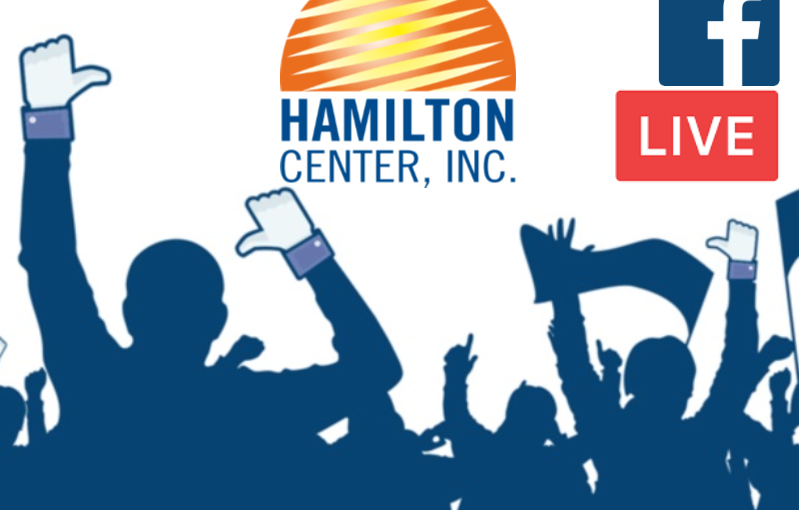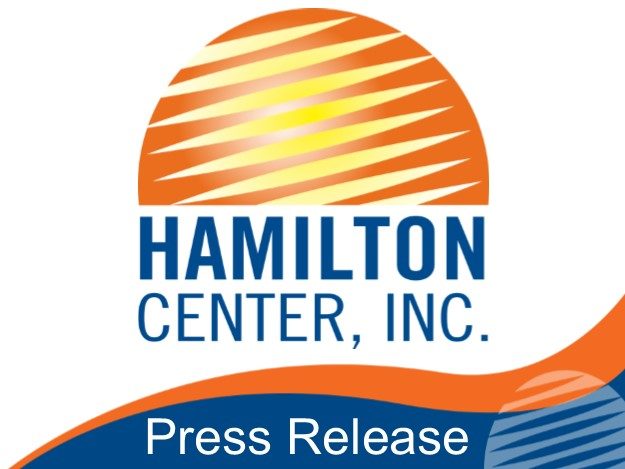Melvin L Burks demonstrates how to properly wash your hands during the pandemic.
Category: Hamilton Center, Inc. News
This category contains content related to Hamilton Center, Inc. News.
WATCH: Soak up the Sunshine
Melvin L Burks encourages folks to get out, be active and soak up the sunshine.
WATCH: Do the 6 things to get #backontrack
Melvin L reminds viewers what needs to happen to get #backontrack.
Mental Health Month even More Meaningful this year
By: Melvin L Burks, CEO, Hamilton Center, Inc.
It is impossible to not talk about COVID-19 with my annual May message in recognition of National Mental Health Awareness month. Today’s unique environment gives us a very small glimpse of the isolation that people who have mental illnesses often experience. Even for those of us who have never experienced a serious mental illness first hand, this health crisis can give us just a taste of the feelings of hopelessness, fear, isolation, sadness and anxiety that many people face – one in five people at some time in their lifetime.
In addition, I’m also reflecting on what life will be like once this health crisis is behind us. Although the physical health issues may be addressed, many of us will struggle with ways to cope with its mental health consequences.
Hamilton Center’s theme this year is STIGMA, NOPE not today. Stigma remains a significant reason why peopleavoid seeking treatment. It will take all of us working collectively to combat this fact. If you or someone you know is struggling to cope, please reach out for help. It is the hardest, easiest thing to do. Reach out to family, friends, your religious leader, a teacher or anyone that can provide support. And if the struggle is impacting your life significantly, reach out to a professional. We are in this together and STIGMA, NOPE not today.
Compassion Fatigue
Those in Helping Professions often feel burnout
By: Sara Chambers, LMHC, Program Manager, Hamilton Center Inc. Hendricks County
While 48% of Americans state that they feel a level of burnout with their jobs, they struggle to identify how it occurs and what to do once identified. Individuals are leaving what are deemed “helping professions” (teaching, nursing, mental health, pet care, clergy) within 3 to 5 years of entering the profession, due to feelings of compassion fatigue.
Burnout and Compassion Fatigue, while usually linked, are different. Burnout is a reaction resulting from high levels of stress. Compassion fatigue is an emotional reaction as a result of being exposed to and working with individuals suffering from trauma. Compassion fatigue is acute in nature, while burnout can be a result of work stress, poor self- care, or other institutional pressures.
I challenge you to ask yourself “What are my personal signs of burnout?” If you don’t know, ask a loved one or colleague. The most common identified are lack of support, having a personal trauma history, and isolation. While we may not notice these immediately, we start to display it as irritability, feeling anxious, conflicts with others, loss of direction, decreased motivation, personal and professional blurred boundaries, and becoming distracted or unfocused. It can evolve to feeling constantly ‘stuck,’ and result in declining physical health.
Fortunately, whether you identify as feeling burnt out or dealing with compassion fatigue, you can work your way back to mental wellness. Once you identify what your personal signs of burnout and compassion fatigue are, implementing a mental wellness routine can help promote resiliency, which will decrease the severity, intensity, and duration of future feelings of burnout.
You can build resiliency and feel less fatigued by doing daily upkeep on yourself. Symptoms of burnout include feeling irritable, dealing with sleep issues, restless, and poor focus and concentration. You may also feel overwhelmed, helpless, and indecisive. The key to combating these issues is to find ways to decompress and engage in those activities 2-3 times a week. Exercise and healthy eating habits are essential. Identifying what can help your nervous system to rest is important. For some, it is reading a book; for others it is hosting events. It is critical to know your limits and to set them as well as assertively communicating your needs to others. Being able to assert yourself, setting healthy boundaries, knowing what your limits are, and doing routine maintenance on yourself can help build longevity of compassion satisfaction and promote mental wellness.
Lastly, for some individuals, seeking professional help can assist those with compassion fatigue or burnout to become productive, feel better and achieve improved mental wellness overall.
Hamilton Center, Inc. is a regional behavioral health system in Central and West Central Indiana with corporate offices located in Terre Haute, IN. Services are provided to children, youth and adults, with specialized programs for expectant mothers, infants, and people who may be struggling with stress, life changes, or relationship issues as well as more serious problems such as depression, anxiety disorders, and serious mental illnesses.
For information on Hamilton Center Services call (800) 742-0787.
WATCH: #backontrackIN
In this episode CEO Melvin L explains Governor Eric Holcombs plan to get Indiana #backontrack.
WATCH: CEO Melvin L Burks Welcomes Guest and Talks COVID-19
CEO Melvin L Burks welcomes a guest and talks more about COVID-19 updates.
WATCH: Sheriff Shootout Putting Contest
CEO Melvin L Burks Hosts the Sheriff Shootout Putting Contest in recognition of the 29th Annual Sheriff Shootout Gold Outing.
WATCH: Tips for working from home and how to manage sadness
CEO Melvin L discusses tips for working from home and how you can manage sadness.
WATCH: Gifts and Messages from HCI Friends
Melvin L shares some gifts and messages from Hamilton Center consumers and community members.








